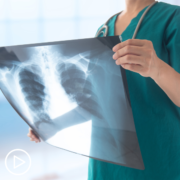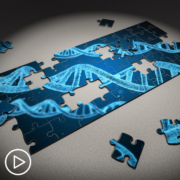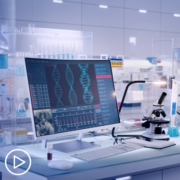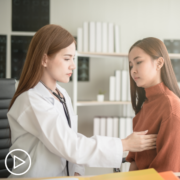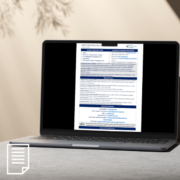How Can Lung Cancer Experts in Academic and Community Settings Collaborate?
How Can Lung Cancer Experts in Academic and Community Settings Collaborate? from Patient Empowerment Network on Vimeo.
How can lung cancer collaboration happen in academic and community settings? Experts Dr. Lyudmila Bazhenova and Dr. Jessica Bauman share their perspectives on collaboration challenges and potential ways to decrease these challenges in the future.
See More from Lung Cancer | Empowering Providers to Empower Patients
Related Resources:

Building on Lung Cancer Successes for Targetable Oncogenic Drivers |

How Can Lung Cancer Physician-Patient Communication Be Improved |
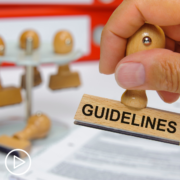
|
Transcript:
Dr. Nicole Rochester:
So my next question really has to do with how can lung cancer experts in academic settings partner with, collaborate, work with those experts in the community settings to overcome some of these challenges that you all just talked about as it relates to biomarker testing? So I’ll start with you, Dr. Bauman.
Dr. Jessica Bauman:
So, that’s a million dollar question. I do think there are many opportunities of educational opportunities to continue to educate everybody in terms of lung cancer. I think lung cancer is a very common diagnosis. And so we know that many community providers absolutely deliver excellent lung cancer care. And so making sure that there are many opportunities for them to participate in, either citywide or nationwide educational opportunities for updates on lung cancer. We have in Philadelphia, we actually have an academic, sort of a multi-multidisciplinary, multi-institutional tumor board, thoracic tumor board that happens quarterly, which we invite community providers to to discuss some of the latest literature. Certainly our emails are always available, so we can always bring them, certainly we get many different questions that come in from other providers, but I’m sure we could do a better job. And I’m very curious to hear what Dr. Bazhenova thinks about this as well, because I think it is such a huge challenge.
Dr. Lyudmila Bazhenova:
I agree with you fully, and I think my two cents here is I think we have to recognize and accept that one size does not fit all in this situation. And whatever works for my institution is probably not going to work for a smaller community practice. But as long as we recognize that this needs to be done and each community practice can work with their stakeholders in the molecular testing pathway, like molecular pathologists, regular pathologists, surgeons. Each institution has power to establish their own internal pathways. Would it be what Dr. Bauman says, reflex testing, which is probably not going to be an option for a majority of the community setting, because they do not have their own NGS. It’s going to be a sendout. Or like in our institutions, we don’t have a reflex molecular testing. It’s us medical oncologists who are ordering it, but we kind of get it on the backside.
We can get the patient in within 24, 48 hours from the consult was put in. And so that’s why we didn’t do the reflex testing, but as the reason we did it is because we sat down as a team and we decided this is what works for us. So I encouraged the community groups again, sitting down saying, okay, the task in hand is lung cancer patient has to have molecular testing at the time of the diagnosis. How are we going to get it, and how are we going to make sure that we are not missing, you know, have some kind of internal QI, and make sure you know what your practice is doing rather than assuming that your practice is doing molecular testing for all the patients.
Dr. Nicole Rochester:
Thank you so much. Did you have something you wanted to add, Dr. Bauman?
Dr. Jessica Bauman:
Yeah, I was just going to say, and I think that so many things are happening before they ever see us, that includes a pulmonologist is going in and doing a biopsy, right? Or an interventional radiologist is getting a biopsy. So it has to start way upfront of the actual diagnosis because the, what you want to try to get to capture the information as soon as you can, right? So you don’t want to get just an FNA biopsy, for example, of a liver lesion knowing that three weeks later what you really need is a core biopsy, right? So it really, the path you do, it involves so many different stakeholders when you’re having conversations about how to streamline this for your own institution and practice.

